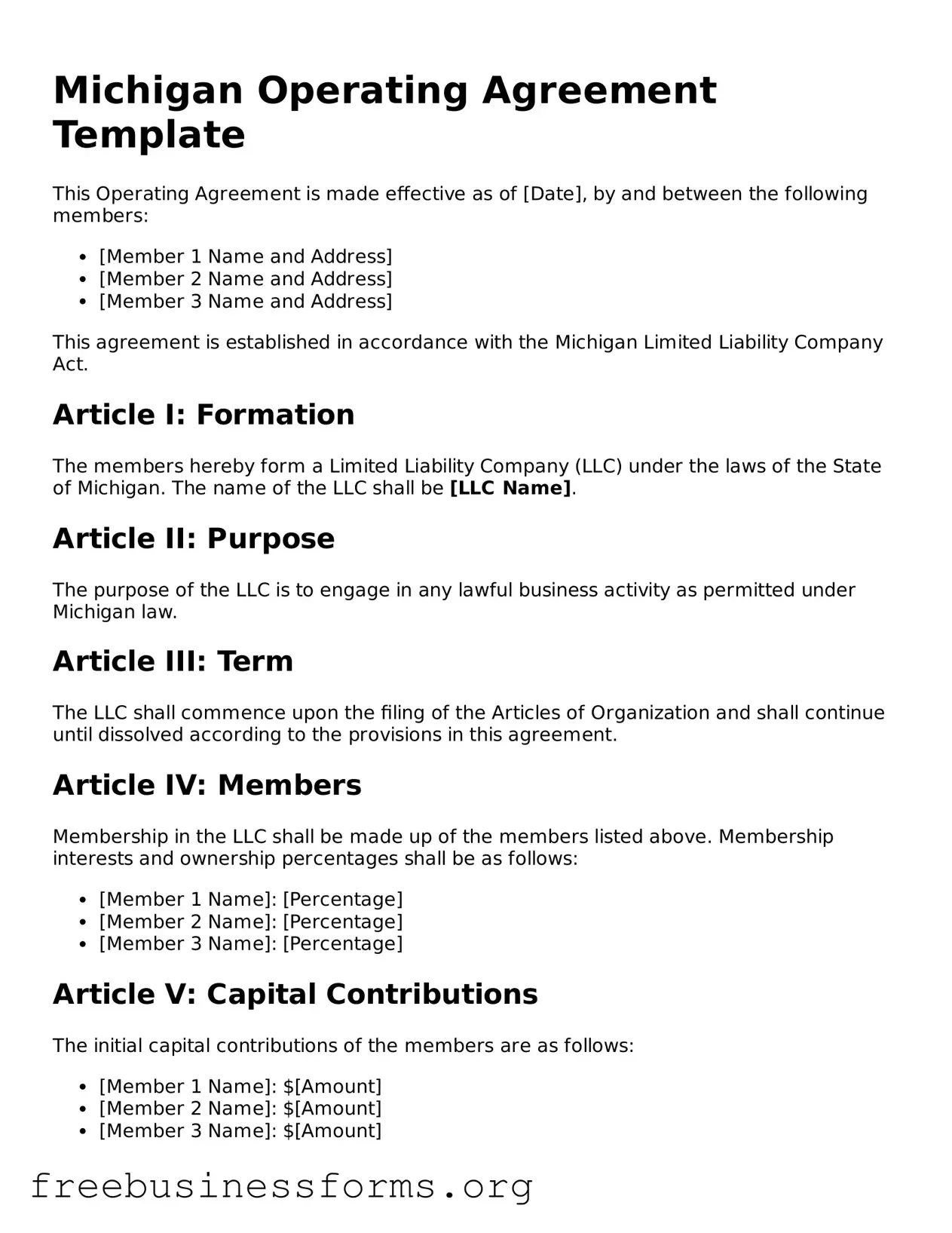Blank Operating Agreement Template for Michigan
The Michigan Operating Agreement form is a crucial document for limited liability companies (LLCs) in Michigan, outlining the management structure and operational procedures of the business. This agreement serves as a foundational guideline for members, detailing their rights and responsibilities. By establishing clear terms, the Operating Agreement helps to prevent disputes and ensures smooth business operations.
Open Form Here

Blank Operating Agreement Template for Michigan
Open Form Here

Open Form Here
or
↓ PDF File
Quickly complete this form online
Complete your Operating Agreement online quickly — edit, save, download.